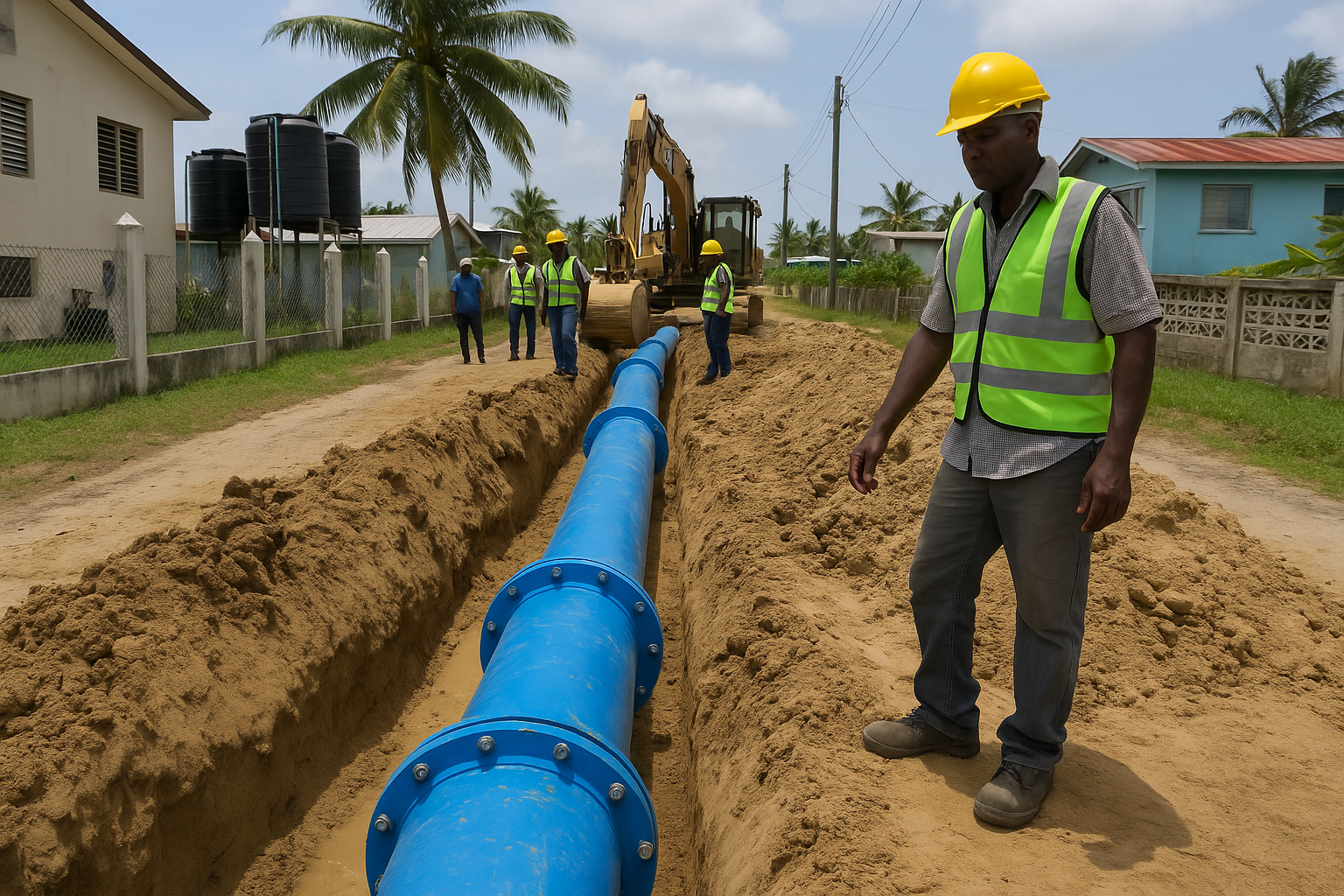Gauteng Unveils Bold 13-Point Plan to Fix Failing Infrastructure
The GPG has acknowledged the alarming deterioration of infrastructure across Gauteng, describing it as a direct threat to economic growth and investment.

- Country:
- South Africa
The Gauteng Provincial Government (GPG) has unveiled a comprehensive, multi-faceted strategy aimed at addressing the province’s deepening infrastructure crisis, tackling organised crime syndicates, and improving project management to ensure long-term sustainability. Premier Panyaza Lesufi first announced this ambitious 13-point plan during his State of the Province Address in February, framing infrastructure as a cornerstone for economic revival, job creation, and social transformation.
Confronting Decay and Mismanagement
The GPG has acknowledged the alarming deterioration of infrastructure across Gauteng, describing it as a direct threat to economic growth and investment. Officials cite decades of inadequate maintenance, deliberate vandalism by criminal networks, pressure from construction mafias, and persistent project mismanagement as key drivers of the crisis.
To turn the tide, the government is placing unfinished projects and failing assets under scrutiny, with a new strategy aimed at restoring public confidence in state-led development. The approach centres on completing stalled projects, safeguarding existing infrastructure, and introducing systems to prevent future neglect.
Establishing an Infrastructure War Room
One of the flagship interventions is the creation of an Infrastructure War Room, tasked with identifying risks, overseeing turnaround strategies, and mobilising funding—particularly through Public-Private Partnerships (PPPs). This hub will serve as the nerve centre for decision-making and accountability in critical projects across the province.
Complementing this is the rollout of the Infrastructure Delivery Platform (IDEP) by the Department of Infrastructure Development (DID). The IDEP is designed to accelerate progress on distressed projects, enhance transparency, and improve communication between government departments and contractors.
Cracking Down on Non-Compliance
In a decisive move, the government has begun terminating contracts with non-performing service providers. These companies are being listed for submission to the National Treasury for blacklisting, effectively barring them from bidding on future projects. This measure signals a renewed emphasis on accountability and quality control within public procurement processes.
Revitalising Gauteng’s CBDs and Assets
The Gauteng Infrastructure Financing Agency (GIFA), now centralised within the DID, has been tasked with spearheading the revitalisation of Johannesburg’s CBD. Underutilised government-owned properties are being earmarked for commercialisation to transform them from financial burdens into income-generating assets. According to the provincial government, this innovative approach is intended to stimulate economic growth, generate jobs, and expand the revenue base.
Targeting Construction Mafia and Infrastructure Crime
The government has escalated the fight against construction mafias to the Gauteng Essential Infrastructure Task Team, a multi-agency force led by SAPS. The team brings together law enforcement, traffic officials, and technical experts from Eskom and Transnet to carry out intelligence-driven operations against crimes such as cable theft, vandalism, and illegal utility connections. Recoveries of stolen materials and the disruption of syndicate operations form the core of this crime-busting strategy.
Strengthening Accountability and Youth Empowerment
Premier Lesufi has taken steps to ensure greater accountability at the leadership level. Performance contracts for all Heads of Department (HoDs) will now include specific targets for reducing unfinished projects, with strict consequence management for those who fail to deliver.
Meanwhile, the recently launched Nasi Ispani 2.0 initiative is providing unemployed youth with training in critical trades such as plumbing, electrical work, construction, and plastering. A total of 2 810 young people are being enrolled in this programme, which aims to build a skilled workforce capable of maintaining and completing provincial infrastructure. Many of these youth will be deployed to projects, thereby reducing long-term reliance on external contractors and embedding sustainability within the province’s workforce.
A Path to Economic Transformation
The GPG has framed this 13-point plan as more than just a technical fix to infrastructure woes—it is positioned as a catalyst for unlocking economic potential, attracting investment, and reshaping the province’s development trajectory. By directly addressing the root causes of decay, enforcing accountability, and mobilising youth talent, Gauteng is seeking to build infrastructure that is both resilient and transformative.
The success of this strategy will hinge on consistent political will, effective enforcement against criminal syndicates, and the ability of departments to deliver on promises. For now, the plan represents a significant step toward tackling Gauteng’s infrastructure challenges head-on, with the potential to spark meaningful social and economic change.
ALSO READ
Innovative Framework Boosts Governance in Public-Private Partnerships
China Unveils Sweeping Measures to Boost Economic Growth
India-EU Free Trade Agreement: Paving the Way for Economic Growth
AI can lead to 8% plus economic growth to realise the vision of 'Viksit Bharat': NITI Aayog Report
Women of Manipur at forefront of state's economic growth: PM Modi at Imphal rally.










